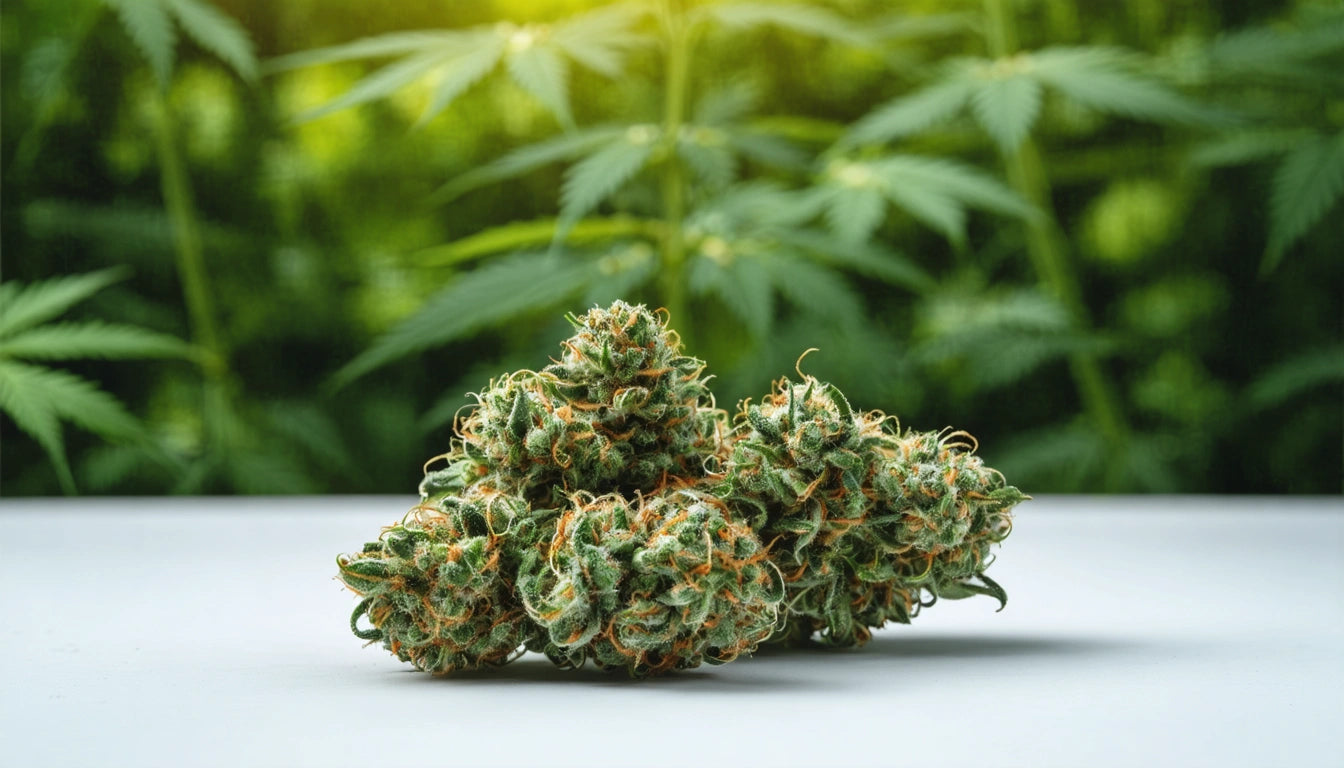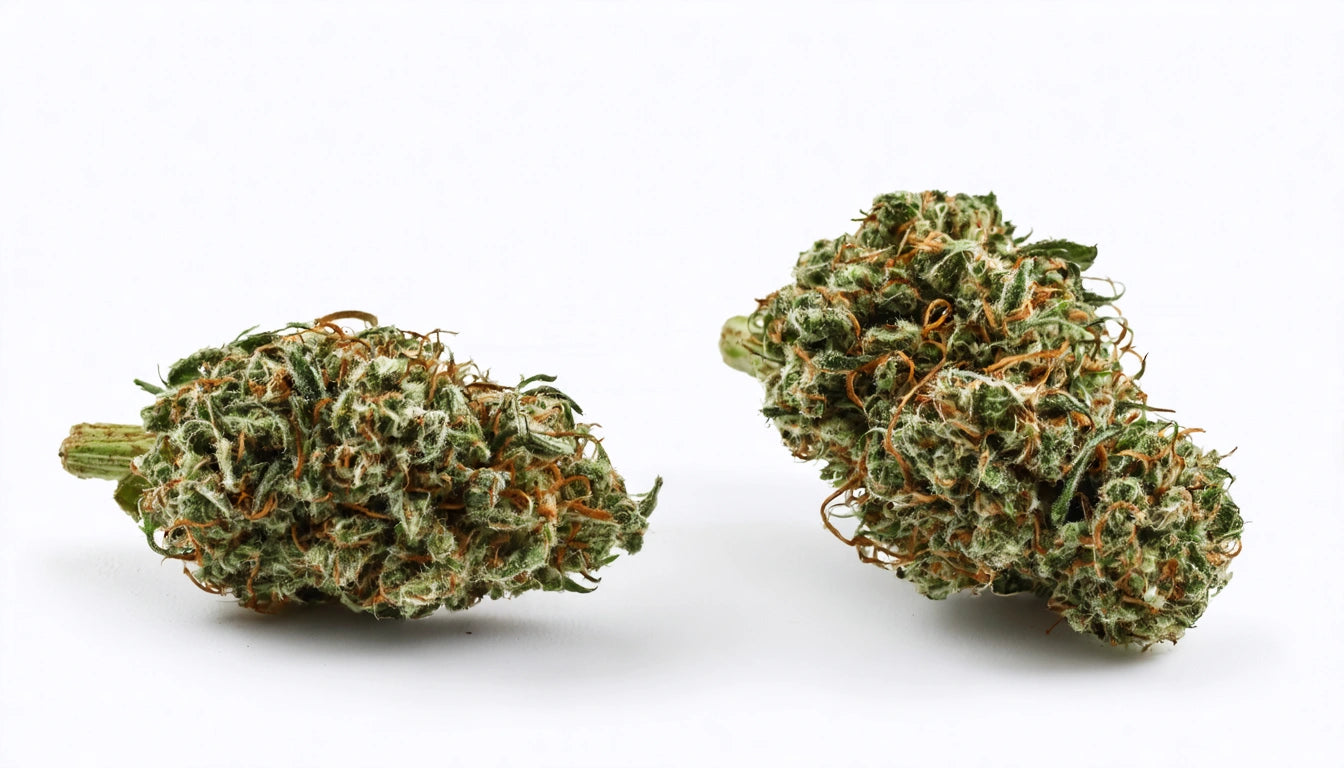Table of Contents
Can Weed Cause or Relieve Nausea? Understanding Its Effects
Cannabis has a complex relationship with nausea. While many people use marijuana specifically to combat nausea and vomiting, others experience these very symptoms when consuming it. This seemingly contradictory effect has led to considerable confusion about whether weed helps or hurts when it comes to stomach discomfort.
The Dual Nature of Cannabis and Nausea
Cannabis contains over 100 cannabinoids that interact with the body's endocannabinoid system. This system plays a crucial role in regulating numerous physiological processes, including nausea and vomiting reflexes. The two primary cannabinoids, THC (tetrahydrocannabinol) and CBD (cannabidiol), can have different and sometimes opposing effects on these symptoms.
According to research on THC's benefits for nausea, cannabis has been used medicinally for thousands of years to treat digestive issues. However, the relationship is dose-dependent and varies significantly between individuals.
Why Does Weed Make Some People Nauseous?
Cannabinoid Hyperemesis Syndrome (CHS)
One of the most severe forms of cannabis-induced nausea is Cannabinoid Hyperemesis Syndrome (CHS). This condition typically affects long-term, heavy cannabis users and causes:
- Cyclical vomiting episodes
- Persistent nausea
- Abdominal pain
- Relief with hot showers or baths
CHS represents a paradoxical effect where the same substance that many use to relieve nausea actually begins to cause it. Studies on cannabis-induced nausea suggest that chronic stimulation of cannabinoid receptors may disrupt normal digestive function.
Overconsumption and Greening Out
Even casual users can experience nausea when consuming too much THC in a single session. This phenomenon, sometimes called "greening out," can include symptoms like:
- Intense nausea and sometimes vomiting
- Dizziness and disorientation
- Anxiety or paranoia
- Rapid heart rate
Proper dosing is crucial for avoiding these unpleasant effects. Many experienced users rely on accurate digital scales for measuring their cannabis to ensure consistent, controlled consumption that minimizes adverse reactions like nausea.
Cannabis for Nausea Relief: How It Works
For many medical marijuana patients, cannabis provides effective relief from nausea and vomiting, particularly in cases related to:
- Chemotherapy-induced nausea
- HIV/AIDS-associated wasting
- Inflammatory bowel conditions
- Migraine-related nausea
THC appears to suppress nausea and vomiting by activating CB1 receptors in the brain's vomiting center. As explored in this detailed analysis, THC's antiemetic properties have been recognized medically for decades, leading to synthetic THC medications like dronabinol being approved for treating chemotherapy-induced nausea.
Does Stopping Smoking Weed Make You Nauseous?
When regular cannabis users suddenly stop consumption, they may experience withdrawal symptoms that include nausea. This occurs because the body has adapted to the presence of cannabinoids, and their absence creates temporary physiological disruptions.
Withdrawal-related nausea typically:
- Begins within 24-48 hours after cessation
- Peaks within the first week
- Gradually subsides over 1-2 weeks
- Is more common in heavy, long-term users
The intensity of withdrawal symptoms correlates with the duration and amount of prior cannabis use. Research on cannabis and digestive health indicates that the endocannabinoid system requires time to rebalance after prolonged cannabis exposure.
Can the Smell of Weed Make You Feel Nauseous?
Some individuals report feeling nauseous from merely smelling cannabis. This reaction can stem from:
- Previous negative experiences creating a conditioned response
- Sensitivity to terpenes (aromatic compounds in cannabis)
- Psychological aversion or anxiety about cannabis
- Cross-sensitivity with other strong odors
Terpenes, which give cannabis its distinctive smell, can trigger various physiological responses. For sensitive individuals, these compounds might stimulate the same neural pathways involved in nausea perception.
Consumption Methods and Nausea Management
The method of cannabis consumption significantly impacts its potential to cause or relieve nausea. Studies on smoking and digestive health suggest that combustion introduces irritants that might exacerbate gastrointestinal discomfort in some users.
Methods Less Likely to Cause Nausea
- Vaporizing (lower temperatures produce fewer irritants)
- Tinctures (sublingual absorption bypasses digestive tract)
- Transdermal patches (slow, steady delivery without GI involvement)
Methods That May Help Relieve Existing Nausea
- Sublingual tinctures (fast-acting relief)
- Low-dose edibles (longer-lasting effects)
- CBD-dominant products (anti-inflammatory properties)
When using cannabis to address nausea, starting with very low doses and gradually increasing as needed helps minimize the risk of paradoxical effects. Understanding strain effects is also crucial, as some varieties may be more likely to trigger or relieve nausea based on their cannabinoid and terpene profiles.
Future Research and Clinical Applications
The bidirectional relationship between cannabis and nausea represents an important area for continued scientific investigation. Emerging research focuses on:
- Identifying optimal cannabinoid ratios for antiemetic effects
- Understanding the mechanisms behind CHS
- Developing targeted treatments for cannabis-induced nausea
- Exploring the entourage effect of cannabinoids and terpenes
As cannabis legalization expands, more clinical data will help clarify when and how cannabis might be beneficial for nausea and when it might worsen symptoms. For those considering cannabis for nausea relief, consulting healthcare providers and starting with minimal effective doses remains the safest approach.
Whether cannabis helps or hurts nausea ultimately depends on individual physiology, consumption patterns, and specific health conditions. By understanding these variables, users can make more informed decisions about incorporating cannabis into their wellness routines.











Leave a comment
All comments are moderated before being published.
This site is protected by hCaptcha and the hCaptcha Privacy Policy and Terms of Service apply.